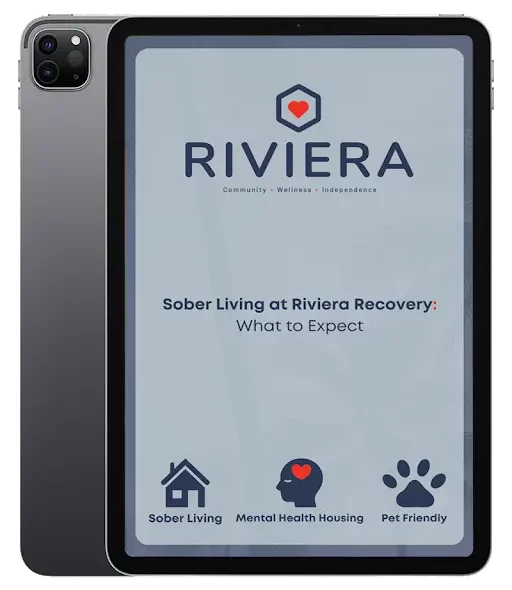Those who are considering sober living in Los Angeles typically have many questions about these recovery programs. Sober living homes provide a secure and supportive living environment, which allows individuals to continue in the process of recovery while adjusting to society again. Los Angeles has an array of sober living options, including co-ed and gender-specific residences.
Residing in a sober home in Los Angeles is a very important component of the recovery process and its important to know everything about sober living before you or a loved one enters into a program. Continue reading to learn more about sober living houses, what to expect, the typical cost, and much more.
Sober living in Los Angeles provides a secure environment for those in recovery to continue their healing process while reintegrating into the community.
What is Sober Living?
Sober living is a housing option for those recovering from substance abuse and addiction. It is a sober environment where residents live together and support each other in their recovery. The primary goal of these programs is to create a safe and supportive atmosphere for people to carry on their healing process and gradually transition into independent living.
Many sober living homes are managed by a live-in supervisor or a board of directors, and typically come with established regulations that tenants must follow. These could include regular drug testing, a specific time to be home, and attending recovery meetings such as 12-step programs or therapy. Additionally, residents may be required to take part in cleaning and maintaining the shared living spaces, and pursue employment or educational opportunities.
The size and structure of sober living homes can differ greatly. Some are private residences, while others are high-rise apartments. Some are gender-specific, while others are open to both genders. Some offer additional services such as counseling and therapy, while others focus on peer support. They are typically seen as part of a continuum of care for those trying to recover from addiction, coming after inpatient treatment or detox and before living independently. They create a regulated and supportive atmosphere that helps people learn the practices and behaviors necessary to maintain sobriety and reintegrate into society.

What to Expect in a Sober Living Home
While in a sober living home, residents can expect to take an active role in their recovery journey by participating in regular support meetings such as 12-step programs or therapy sessions. This nurtures a sense of personal responsibility and accountability to help them stay on track. Additionally, they should be prepared to seek employment or attend school, and contribute to the household by cleaning and maintaining the common areas.
Residents in sober living homes can expect to have a structured daily routine that comprises completing chores, attending meetings, and other obligations. In addition to this, some sober living homes may provide additional support services such as counseling or therapy sessions, which can help further equip residents with skills to sustain their sobriety.
Residents can rest assured that they will have a reliable network of individuals in the home and on staff, all of whom are invested in helping them stay sober and reach their recovery goals. Along with support, residents also have the opportunity to develop essential skills that can help in life outside of the home, such as budgeting, managing time efficiently, and establishing healthy habits.
Download Our FREE eBook
We encourage you to download our informational eBook that illustrates what you can expect within Riviera Recovery’s sober living program

Do I Need Sober Living in Los Angeles?
Sober living houses can be advantageous to many people recovering from addiction to drugs and alcohol, including but not limited to the following:
Those Who Have Completed Intensive Addiction Treatment
Sober living homes provide a critical step in the recovery process for individuals who have recently completed inpatient treatment or detox, allowing them to transition back into society in a structured and supportive environment. Such residences can help those in recovery by providing an atmosphere that promotes autonomy while still providing accountability and structure. Furthermore, living with others who are also striving toward sobriety can be greatly beneficial and can even provide peer support.
Those Without a Home Conducive to Sober Living
Sober living homes provide a unique opportunity for individuals who are having difficulty maintaining sobriety in their current living situation. These homes offer all the necessary services and support needed for these individuals to stay on the right track. It’s an ideal option for those who want to remain completely sober and free of any triggers that may be present in their current living situation.

Those With a History of Relapse
Sober living homes are a valuable resource for individuals who have a history of relapse and are looking to gain long-term recovery. Such homes offer a supportive and accountable environment for those in early recovery, helping them stay motivated and engaged in the recovery process. The structure, accountability, and community of sober living homes provide individuals who have a history of relapse with the chance to develop skills that can help them remain abstinent and maintain their sobriety over the long term.
Those With Limited Support
For individuals who have limited support systems, such as those who may have strained relationships with family and friends, sober living homes can provide a much-needed network of care. These homes offer more than just a place to live; they provide an atmosphere of community and understanding, populated by other individuals who are also in recovery. Furthermore, these homes tend to have staff members who are dedicated to helping all of the residents achieve their recovery goals. This often includes providing crucial resources, such as access to counseling services or addiction treatment centers.
Those in the Early Stages of Recovery
Sober living homes are an invaluable option for individuals who are new in recovery and looking to build a solid foundation for their journey towards long-term sobriety. They provide a safe and supportive environment, with structure and guidance, that can be essential for those beginning the process of recovery. Furthermore, individuals in sober living homes have access to a wide range of recovery-oriented activities, such as support groups and community events, to help them stay on track in their sobriety journey.
How Much Does a Sober Living Program Cost?
The cost of a sober living program varies significantly depending on the area, size, and features of the program. Many sober living homes are complimentary or low-cost, but others may be up to several thousand dollars per month. Homes connected to a treatment facility or hospital may be more expensive than independent residences. Additionally, certain homes may provide extra services, like counseling or therapy sessions, which may add to the total cost.
It’s essential to keep in mind that insurance usually doesn’t cover the expenses of sober living homes, meaning that occupants usually need to pay for the cost themselves. A few homes may provide scholarships or financial aid to help with the cost, but this isn’t always the case. Before joining a program, it’s a good idea to ask about the cost and any available financial assistance.
How Long Do Sober Living Programs Last?
The duration of a sobriety living program can differ significantly depending on the specific program and the individual’s requirements. Some sober living homes may have a predetermined period in which people must reside, while other facilities may permit individuals to remain as long as they need. In some cases, it may be necessary for residents to stay for at least 30 or 60 days, while other homes may have maximum stay limits, for example, six months or a year. In some instances, if people are making progress in their treatment and following the rules of the program, they may be able to extend their stay.
It should be taken into consideration that sober living residences are not a permanent solution for all people, and some individuals may only require a brief stay to strengthen their rehabilitation. Conversely, some may need a more extended period of time in a recovery program to work on their recovery and set up a basis for sustained sobriety.

Sober Living at Riviera Recovery in Los Angeles
If you are in the process of overcoming an addiction and are looking for a sober living house in Los Angeles, Riviera Recovery can help. We know how important it is to establish sobriety after having received treatment in an inpatient setting. At Riviera Recovery, we are dedicated to helping people make the transition into a successful sober life and providing them with the necessary tools and support to do so.
Our team of well-trained staff is focused on assisting individuals to develop the skills and assurance that they need in order to maintain a sober lifestyle even after they leave our facility. We understand that sober living is essential for achieving true recovery, and we are here to assist every step of the way. If you have any questions or would like to learn more about our sober living programs, contact the professionals at Riviera Recovery today.


